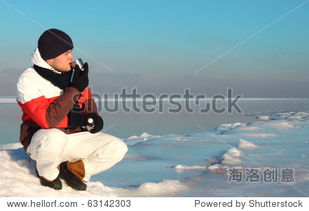Content:
Winter, with its crisp air and blanketed landscapes, often poses a challenge for anglers looking to enjoy their hobby. However, with the right techniques and equipment, winter sea rod fishing can be a rewarding and serene experience. In this article, we will delve into the art of winter sea rod fishing, offering you valuable tips and tricks to help you master this unique fishing season.
Understanding Winter Sea Conditions
Before we dive into the fishing techniques, it's crucial to understand the unique conditions that winter brings to the sea. The water temperature drops, fish become less active, and the weather can be unpredictable. Here are some key points to consider:
- Water Temperature: Cold water slows down fish metabolism, making them less active. Aim to fish in waters that are above 50°F (10°C) for the best results.
- Weather: Winter storms can be brutal. Check the weather forecast and plan your fishing trips accordingly. Dress in layers to stay warm and dry.
- Tides: Tides can be more dramatic in winter, with higher surges and stronger currents. Be prepared to adapt your techniques to these changes.
Choosing the Right Equipment
The right equipment can make a significant difference in your winter sea rod fishing experience. Here's what you'll need:

- Sea Rod: Choose a rod that is strong and flexible enough to handle the force of winter fish. A rod with a medium to heavy power rating is ideal.
- Reel: A spinning reel with a good drag system is recommended. This will help you manage the increased pressure from larger fish and strong currents.
- Line: Use a monofilament line with a thickness that matches your rod's rating. A line thickness of 10-20 pounds is usually sufficient for winter sea fishing.
- Lures and Baits: Winter fish are less active, so opt for larger, more visible lures or baits. Soft plastics, jigs, and spoons are popular choices.
Winter Sea Rod Fishing Techniques
Now that you have the right equipment, let's explore some fishing techniques that can help you catch more fish during the winter months:
- Early Morning or Late Evening: Fish are often more active during these times due to the lower light levels. Plan your fishing trips accordingly to increase your chances of success.
- Shallow Waters: Winter fish tend to move to shallower waters to stay warm. Focus on areas close to the shore or in bays where the water is warmer.
- Vertical Jigging: This technique involves dropping a lure vertically down to the desired depth and then retrieving it in short, sharp movements. It's effective for triggering the interest of inactive fish.
- Trolling: Trolling involves slowly dragging a lure or bait behind a moving boat. This technique can cover a large area and is effective for finding fish in winter conditions.
- Bottom Bouncing: Attach a weight to your line and let it sink to the bottom. Then, slowly retrieve your lure along the bottom, mimicking the movement of natural prey.
- Patience and Persistence: Winter fishing requires patience. Fish may be slow to bite, so be prepared to wait for longer periods between catches.
Safety First
Lastly, always prioritize safety when fishing in winter. Here are some essential safety tips:
- Stay Informed: Keep an eye on the weather forecast and be prepared to adjust your plans if conditions deteriorate.
- Dress Appropriately: Wear warm, waterproof clothing and protective gear to stay dry and comfortable.
- Tell Someone Your Plans: Inform a friend or family member of your fishing plans, including your intended location and expected return time.
- Emergency Supplies: Carry a first aid kit, a flashlight, and a whistle in case of an emergency.
In conclusion, winter sea rod fishing requires a unique set of skills and techniques to be successful. By understanding the conditions, choosing the right equipment, and employing effective fishing methods, you can enjoy a rewarding and memorable winter fishing experience. Remember to prioritize safety and stay patient, and you'll be well on your way to becoming a master of winter sea rod fishing.












